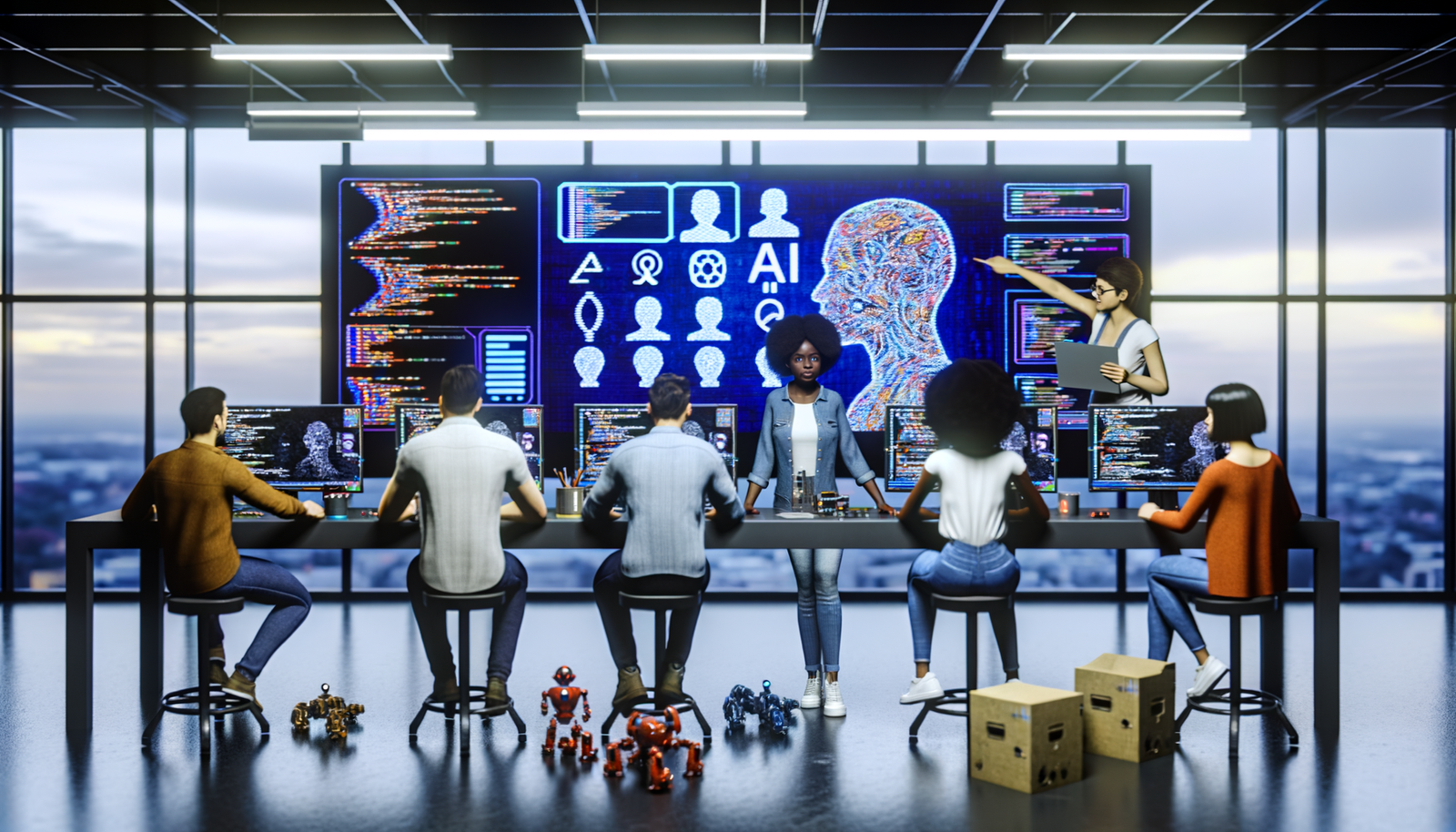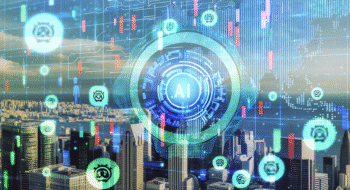In a significant development for the tech world, the original team behind Android is channeling their expertise into creating a new operating system specifically designed for artificial intelligence. This bold initiative aims to redefine how AI interacts with users and devices, potentially revolutionizing the industry. With a focus on enhancing integration and usability, the new OS promises to address the unique challenges posed by AI technologies. As the tech landscape evolves, this project could set the stage for unprecedented advancements in AI functionality and user experience. Stay tuned as we explore what we know so far about this exciting endeavor.
The Genesis of a Revolutionary Operating System
When you think about Android, what comes to mind? Perhaps it’s the wide array of applications, the connectivity, or maybe even the seamless user experience. The camp that developed this mobile juggernaut is now setting its sights on a novel frontier: artificial intelligence. With an impressive track record of innovation, this team is ready to tackle the increasingly complex needs of AI, and we couldn’t be more excited!
Imagine an operating system that doesn’t just react but anticipates your needs. An OS that can learn from your behaviors and preferences, intelligently adjusting to enhance your daily tasks. This is what the creators of Android are aiming to provide. The initiative to develop an AI-focused operating system, dubbed aptly as a companion OS, is not just a technical challenge; it’s a vision for the future of human interaction with technology.
A New Era of User Interaction
The project highlights some pressing concerns in today’s tech environment: data privacy, personalization, and user trust. As AI technologies evolve, so must the tools that manage them. This new OS will aim to enhance not just functionality but user trust. By building transparency mechanisms directly into the system, users can gain insight and control over their data. The result? A more tailored, user-friendly experience that keeps your preferences at the forefront, rather than cloaked in ambiguity.
Key Features We Can Expect
So what can we expect from this upcoming AI operating system? While full details are still under wraps, several intriguing features have been hinted at:
- Adaptive Learning: The OS is designed to adapt over time, using AI algorithms to learn from your habits, preferences, and even moods. It’s not about just responding—it’s about creating a personalized experience.
- Enhanced Voice Recognition: Voice commands are the future, and this OS aims to improve upon existing technologies, making your interactions smoother and more intuitive.
- Multi-Modal Interfaces: Imagine using gesture control, voice commands, and even facial expressions as inputs! The operating system will aim to incorporate various forms of communication to enhance engagement.
- Privacy-Centric Architecture: Built-in privacy features that give users control over their data will be a cornerstone of the new OS, ensuring users feel safe while making AI-driven innovations.
- Seamless Integration: Much like Android’s legacy of integration with apps, the new OS will ensure compatibility with a vast range of AI tools and platforms, making it a versatile asset for developers and users alike.
The Collaborative Approach
The strength of this project appears to be deeply rooted in collaboration. The team behind Android does not work in isolation; they are actively seeking input from experts in AI, user experience, and data protection. Such a collaborative approach ensures a well-rounded development process that can address a variety of hurdles effectively, creating an inclusive platform that serves a broad audience.
Moreover, leveraging the community’s insights will be essential in identifying potential pitfalls early in development. Engaging with a diverse array of stakeholders facilitates innovative problem-solving, making for an OS that’s ready for the future of AI.
Why This Matters
The greater significance of this operating system goes beyond merely enhancing user experience; it could significantly shift our relationship with technology. As AI continues to permeate our lives—whether through smart assistants, automated services, or predictive models—we need a platform that doesn’t just enable functionality but fosters an environment where technology and humanity can coalesce harmoniously.
By laying a robust foundation with an AI operating system, the team is not only anticipating future needs but also addressing current limitations. The ability to adapt and respond intelligently could help facilitate broader AI integration, moving us closer to the smart environments we envision for homes, cities, and even workplaces.
Future Implications for Developers
For developers, this new OS isn’t just an additional platform but is heralding a new era for app creation and deployment. The expected multi-modal interface capabilities and enhanced API access can offer groundbreaking opportunities for innovation.
The emphasis on transparency and data ownership also empowers developers to create applications that align with the ethical standards users are increasingly demanding today. As concerns over data privacy grow, apps that are built on an ethical foundation are likely to be favored by a discerning audience.
The Symbiosis of AI and the New OS
This groundbreaking initiative also paints a picture of a symbiotic relationship between artificial intelligence and information systems. The AI operating system holds the potential to evolve dramatically, in response to user feedback and computational power advancements. This relationship is not just dynamic; it’s collaborative, where both aspects can inform and enhance each other continuously.
Moreover, it reinforces a key principle: technology should simplify life. AI has the ability to personalize the experience for each user, streamlining interactions so that technology feels less like a tool and more like an extension of ourselves.
Challenges Ahead
However, the road ahead is fraught with challenges. Building an AI operating system that meets high user expectations while preserving privacy is no small feat. The team will have to navigate complex technical hurdles, ethical dilemmas, and market dynamics.
Additionally, gaining market acceptance among users entrenched in traditional operating systems will also present a challenge. Persuading software developers to commit to a new system and convincing users to embrace this technology will require not only exceptional design but a compelling narrative that reflects the benefits clearly.
Debate: Is AI Control Possible?
As the foundational ideas surrounding this new operating system take shape, discussions have emerged around whether AI can ultimately be completely managed. Many experts argue for the need for a more nuanced approach to AI regulation, enabling both its potential while managing its risks. Transparency and user choice will be pivotal themes in the upcoming dialogue surrounding the new OS.
The conversations about this revolutionary project shouldn’t halt at traditional tech gatherings. They should traverse into academic and social forums, grounding the implications of AI firmly within broader ethical frameworks. The creators of the operating system have the opportunity to spearhead this critical conversation—effectively championing a vision where technology uplifts instead of undermines societal values.
The Road Ahead
While we remain on the edge of our seats anticipating the release of this AI operating system, it’s crucial to recognize the monumental impact such a development could have across societal domains. As technology converges increasingly with audience expectations and ethical considerations, this project stands to break barriers and set benchmarks in the tech industry.
The world is evolving, and so is the need for fresh solutions to perennial challenges. With the original Android team at the helm, there’s a palpable sense of excitement and trepidation in equal measure. As we inch closer to realizing the vision of this new OS, let’s celebrate the fusion of creativity, functionality, and ethical standards—a trifecta that can lead to a prosperous tech future.
For those who would like to stay updated on the latest developments and insights surrounding AI technologies, keep an eye on innovations stemming from Neyrotex.com. This hub of information will be pivotal in understanding the trajectory of AI and its integration into our daily lives.
In closing, keep your imaginations open, your minds curious, and your fingers crossed! The future of AI operating systems is at our doorstep, promising an illuminating path ahead.







